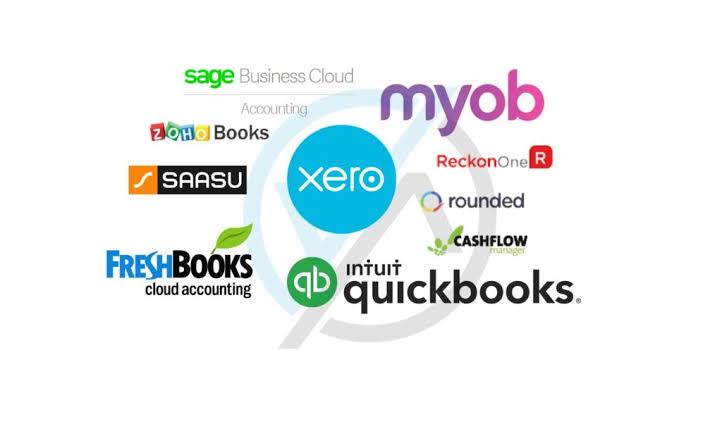Key Takeaways:
- Outsourcing bookkeeping saves time while improving access to expertise and technology.
- Assess your business needs, budget and data security before committing to a provider.
- Prepare for possible challenges like workflow adjustments and reduced visibility.
Managing the books in-house often becomes a constant source of stress for growing businesses. Between tracking daily transactions, payroll and client invoices, business owners struggle to balance financial accuracy with other essential operations. Yet, efficient bookkeeping remains at the heart of business growth, providing the financial clarity every company needs to scale confidently.
That’s why more businesses today are exploring outsourced bookkeeping services to save time, reduce costs and access professional expertise and advanced technology. When done right, outsourcing can transform your financial management by offering accuracy, efficiency and peace of mind — allowing you to focus on what truly drives growth. However, outsourcing isn’t a one-size-fits-all solution. Before making the shift, it’s crucial to evaluate your needs, budget, security protocols and level of oversight to avoid potential issues such as data breaches or loss of control.
This blog covers the key factors to consider before outsourcing bookkeeping, from setting clear expectations and choosing the right tools to understanding pricing and compliance. By the end, you’ll know exactly how to select the right bookkeeper for 2026.
Things to Keep in Mind Before You Outsource Your Bookkeeping
The following are the crucial things proposed by the industry experts that you need to remember before planning about outsourcing your bookkeeping operations.
Setting Clear Goals for Your Outsourced Bookkeeper
When you outsource your bookkeeping operations, it’s just like having someone outside your company handle your day-to-day books. Hence, it’s important to have clear expectations of what your outsourced bookkeeper can and should do. In simple words, you should know what you want in return from the bookkeeper.
For example, here are some standard services a bookkeeper provides:
- The bookkeeper will support timely management of key business tasks to keep operations running smoothly.
- The bookkeeper will accurately record and categorise all transactions, including revenue and expenses.
- Perform regular bank reconciliations to ensure financial accuracy.
- Manage accounts payable and receivable, processing bills and invoices on time.
- Organize and maintain financial records to aid accountant reporting and compliance.
- Provide periodic financial reports and, if applicable, handle payroll reconciliation and documentation.
Hence, you should have clarity on what you expect from the bookkeeper.
Know Your Bookkeeper’s Payment Terms
When you outsource bookkeeping, you will encounter different payment schemes. Some firms charge on an hourly basis, while others use fixed monthly fees. Always ask about payment terms upfront and choose the bookkeeper whose pricing structure fits your budget and workload.
Even though outsourced bookkeeping is usually cost-effective, delays or slow delivery can push costs above your initial estimate. To avoid this, confirm your bookkeeper’s delivery timelines and accuracy in advance so you are not paying more than expected.
Also, insist on transparent pricing. Request a clear cost breakdown and confirm there are no hidden fees or extra charges before you proceed. This helps you control expenses and build a reliable, long-term bookkeeping relationship.
Ensure they use Modern Accounting Technology

Being tech-savvy is the first and foremost necessity to stay competitive in today’s accounting market. Every accounting firm and CPA acknowledges this fact. That’s why gaining access to modern tools and technologies is a major reason many firms choose to embrace outsourced bookkeeping.
When evaluating a potential bookkeeping partner, inquire about the types of accounting and bookkeeping tools or systems they use. It’s best to work with outsourcing firms proficient in leading software such as QuickBooks, Xero, MYOB and Sage. Their familiarity with these systems ensures efficient processes and accurate financial management.
Additionally, prioritize providers that leverage cloud-based bookkeeping software and automation tools. These solutions offer enhanced data accuracy, real-time reporting and easy remote access, key advantages that support smarter decision-making and business scalability.
Prioritise Turnaround Time
Among all the factors discussed above, one of the most critical aspects to consider when outsourcing is the turnaround time for the service(s). One of the primary objectives of outsourcing bookkeeping is to ensure tasks are completed promptly and efficiently.
Your business operations can suffer considerably if there are unnecessary delays or backlogs from your outsourced bookkeeper. Such delays not only slow down the overall bookkeeping process but also leave you with limited time to review and analyse your financial records before important deadlines.
Therefore, choose a bookkeeping company that prioritises speed and consistency. The ideal outsourcing partner should maintain efficient communication, adhere to agreed timelines and be agile enough to handle urgent requirements without compromising accuracy or quality.
Verify Use of Your Licensed Platforms
When outsourcing bookkeeping or accounting tasks, it’s essential to confirm that the service provider operates within platforms licensed to your business. Doing so safeguards the confidentiality of your financial data and ensures compliance with data security standards.
Using your own licensed platforms also maintains transparency and control over access permissions, backups and software updates. It minimises the risk of data breaches and ensures that all records remain securely stored under your organisation’s ownership.
Therefore, always verify that your outsourcing company works strictly within your licensed accounting software and follows your firm’s data protection policies to maintain seamless and secure operations.
Be Aware of Potential Outsourcing Challenges
Yes, you heard that right. While outsourcing bookkeeping brings several benefits, it also comes with certain challenges that businesses must be ready to handle. One of the primary concerns is losing some measure of control over how day-to-day tasks are monitored and executed.
Since your business’s financial data is shared with the outsourcing company, any technical glitches, data mishandling, or process delays at their end could have costly consequences for your business. Communication gaps, time zone differences and varying quality standards can also occasionally lead to misunderstandings or errors.
To mitigate these risks, work with a trusted and transparent outsourcing partner. Establish clear communication protocols, define reporting schedules and ensure data security practices are strictly followed. Preparation and proactive management are key to turning potential issues into manageable outcomes.
Data security and compliance
Ensure your outsourcing partner complies with applicable data privacy laws (e.g., Privacy Act 1988 (Cth) in Australia) and uses encrypted, secure servers with regular security audits.
Scalability
Choose a bookkeeping service flexible enough to scale with your business growth or sudden changes in transaction volumes.
Clear communication protocols
Establish points of contact, response timelines and escalation procedures in your agreement to avoid misunderstandings.
Regular monitoring and review
Assign internal oversight to review bookkeeping outputs regularly and promptly address discrepancies or concerns.
Transparent reporting
Request periodic financial reports and dashboards for continual financial insight and decision-making support.
By keeping these points in mind, you can leverage the benefits of outsourcing bookkeeping, saving costs, gaining access to expert bookkeeping teams, improving accuracy and compliance and ultimately supporting your business’s growth effectively.
Conclusion
Outsourcing bookkeeping has transformed financial management for many businesses globally. However, it may not suit every business, so carefully evaluate the factors above before deciding to outsource bookkeeping.
At Outbooks, our Xero-certified bookkeepers bring expertise in modern accounting tools like Xero, QuickBooks, MYOB and Sage. Cloud-based technology, automation and real-time reporting ensure your bookkeeping is accurate, compliant and scalable, delivering financial insights, operational efficiency, data security, transparent pricing and timely turnaround times to support sustainable business growth.
For expert support, contact Outbooks Australia at info@outbooks.com.au or call 0451 320 102
Parul is a content specialist with expertise in accounting industry. Her writing covers a wide range of domains such as, Accounts Payable, Accounts Receivables, Bookkeeping and more. She writes well-researched content and has a strong understanding of accounting terms and industry-specific terminologies. As a subject matter expert, she simplifies complex concepts into clear, practical insights, helping businesses with accurate tips and solutions to make informed decisions.






